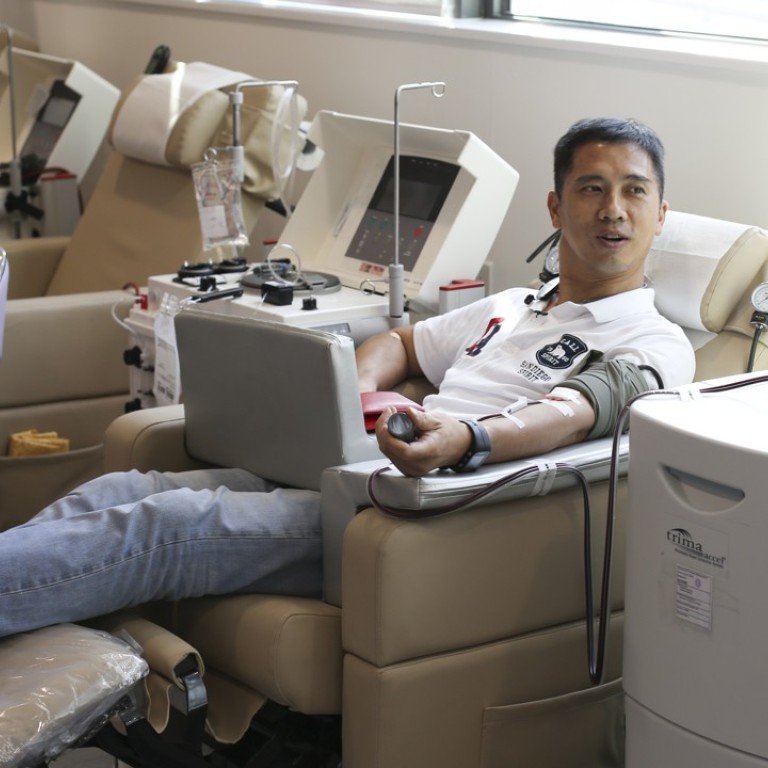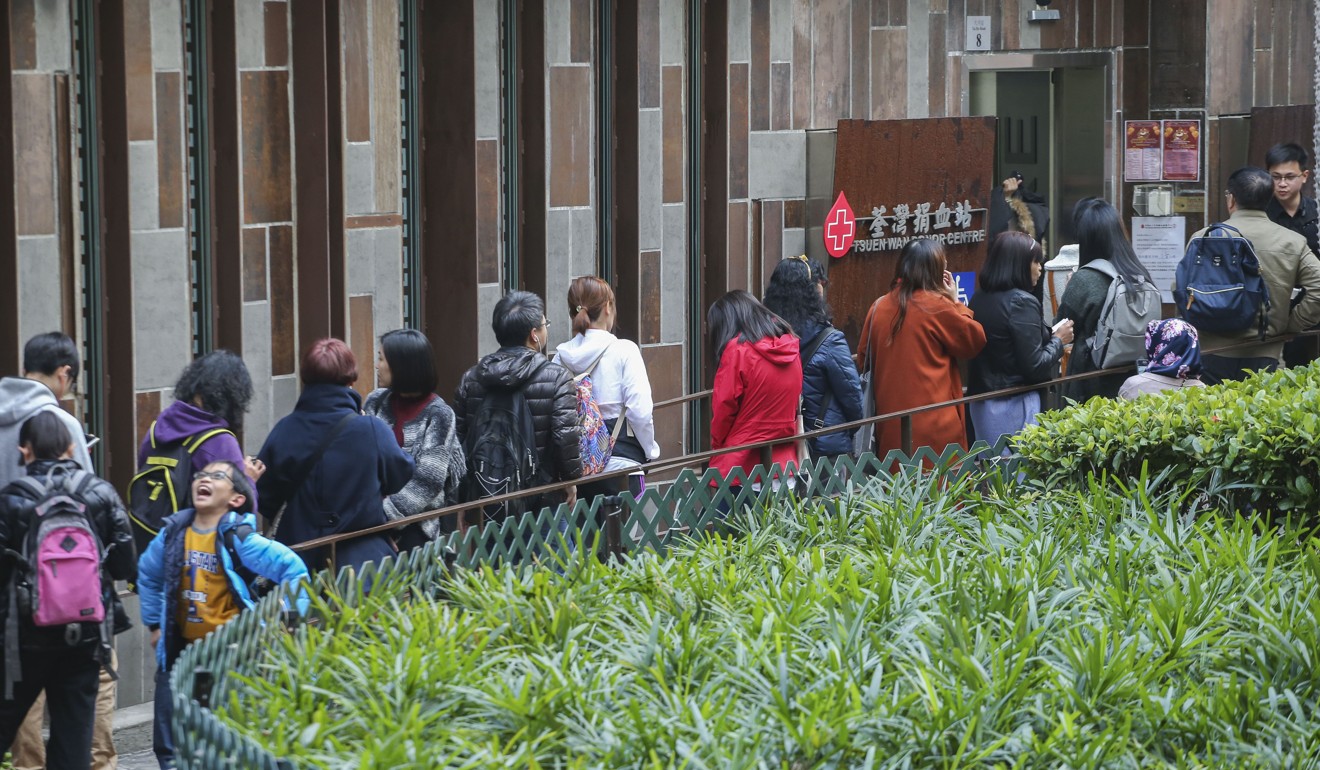
Hong Kong must be able to count on blood donors
According to the Red Cross, 15,000 fewer people stepped forward last year, weakening a service that the city’s ageing population increasingly relies upon
Rain, hail or shine, Hong Kong can depend on its public health system. The same is not entirely true of the collection of blood donations that doctors and hospitals depend on to maintain a world-class system of treatment for illness and injury.
Unpredictable weather can have a capricious effect on the turnout of donors. Between June and October last year, for example, five typhoons prompting the No 8 warning signal or higher seriously slowed or even forced the cancellation of collections.
The Red Cross Blood Transfusion Service says recent cold snaps could have sapped public motivation to step out and give blood. Partly as a result, 15,000 fewer people donated blood last year.
With an ageing population, weather woes are only half the service’s worries.
The proportion of first-time donors was down more than 8 per cent, total donor attendance fell 4.7 per cent, to 312,972, and more than one in five – or more than 68,000 – were rejected, mainly due to insufficient levels of iron in their blood, usually the result of poor diet.
As a result, total collections fell by 5.3 per cent.

To sum up, an ageing population more likely to need transfusions is giving less blood and many would-be donors are being ruled out because they are not eating healthily enough.
Authorities ought to try to establish whether poor diet is attributable to a lack of understanding about nutritional requirements, poverty, food fads or a combination of all these and possibly other factors.
With the Lunar New Year holiday and a break in collections, inventories remain low, according to Dr Lee Cheuk-kwong, chief executive and medical director of the blood transfusion service.
The service rightly won praise a few months ago when it fell into line with best international practice by widening the pool of potential donors to include men who declare they have not had sex with other men in the past 12 months, instead of indefinitely rejecting donations from all men who declare they have engaged in male-to-male sex.
It is good to hear it is continuing efforts to strengthen public education in and awareness of blood donation, including an investment in online appointment services to enhance service quality to donors.

